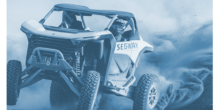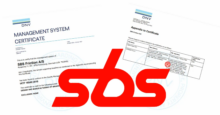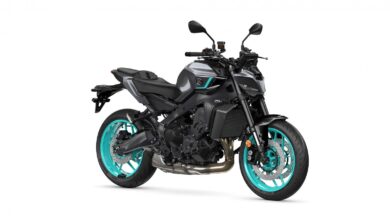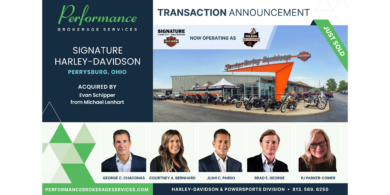Cobra back on top after surviving lead law
The Consumer Product Safety Improvement Act of 2008 was an all-consuming blitz for Sean Hilbert. In fact, he was so caught up in the day-to-day news about the lead law that he once found a reason to show its unthinkable results at a school event.
Hilbert, president of Hillsdale, Mich.-based Cobra Moto, LLC, was talking to one of his children’s middle school orchestra classes when he noticed all the brass instruments in the band room.
“I joked to the instructor, ‘Do you realize you’re 35,000 times over the lead limit with every brass horn you have in here and you’re going to have to cancel band for all these kids?’ He looked at me like ‘What are you talking about?’”
Hilbert knew exactly what he was talking about. Along with chief engineer and business partner Phil McDowell, Hilbert took over Cobra Motorcycles in 2003. Cobra makes bikes geared only to the youth market: two different 50cc motorcycles and a 65cc, all off-road oriented. As Hilbert says, “If you saw the Lites class at Salt Lake City [Supercross], the majority of those guys got started on our bikes.”
Business on the line
In fact, the lead law, as the CPSIA became known, affected Cobra’s livelihood perhaps more than any other entity in the industry prior to its reversal in 2011. For a few years, Hilbert saw business after business ponder its next maneuver.
“When I first learned that the CPSIA had been passed? Honestly, it was disbelief,” Hilbert said. “There was similar disbelief from the craft industry and the skateboard industry and any other company that was making products for kids. The way the legislation was written, every library book that was printed before 1985, I believe, would have to have been destroyed.”
As for Cobra Moto’s immediate future after the CPSIA reared its ugly head? Hilbert made “well over a dozen” trips to Washington, D.C., to meet with legislators, industry personnel and lawmakers in hopes of getting the ban lifted. Without the reversal, Cobra Moto’s future was bleak.
“We would have shut our doors, there’s no question about it. We had two options — either that or we kept operating illegally and made a big stink and made an example out of ourselves. We probably would have gone down that path just to make a point. But we would have been breaking federal law and it would have been ugly.”
Cobra Moto, in fact, never did cease manufacturing at its 50,000 square-foot facility thanks to an industry-wide stay of enforcement. Hilbert began to turn to industry peers who had been doing component-level testing for lead, and figured his operation could overcome some of those challenges.
“The big areas that they were having trouble with were die-cast engine cases and a few other things. Since we’re a small volume manufacturer, I knew that we would probably be clear on some of those areas because we sandcast our engine cases, for example, which doesn’t use an alloy with any lead in it. We don’t need the mold release attribute that lead provides in a die-cast situation. So we did some of our own spot testing of many of our components, and many came back clear.”
Because Hilbert learned of the trouble spots that other OEMs were encountering, a nimble Cobra production line helped the company forge ahead.
“We took extra caution in areas we knew were issues, like tire valve stems, which we completely covered up so that the user could not get to them. We made precautions and we went ahead and kept producing,” Hilbert said. “That was a judgment call on our part based on where we knew the issues were and hard data that we spent a lot of money on getting some testing done.”
With the double-whammy of the Great Recession’s start in 2008 and the CPSIA delivery, Cobra managed to outlast the industry during trying times.
“Piecing apart what the law was responsible for and what the economic collapse is responsible for is pretty tough,” Hilbert said. “I’ll tell you this — off-road motorcycle sales in the U.S. from 2005 to 2010 were down nearly 80 percent over that period of time. Our sales weren’t down anywhere near that amount. We went down about 25 percent over that period and a lot of that was bolstered by aggressive exporting. We went hard into Europe and Canada, Mexico, Australia.”
President Obama’s August repeal of the lead law ban gave Cobra new life.
“Literally in September and October last year we could feel the effect of the categorical exemption being put in place,” Hilbert said. “We still do today.”
April parts sales increased 25 percent from a year ago, and motorcycle sales are up 30 percent through the first four months of the year, compared to 2011.
“I think a big part of that is the lead law [being gone],” Hilbert said.
Passion stirs growth
The 30 Cobra Moto employees who run two shifts in the machine shop, one in assembly and welding and one in parts fulfillment were thrilled to get back to producing Cobra’s engines, suspension components, chassis and plastics for the bikes after the lead ban was lifted.
Youth motocross racers throughout the country were equally excited.
“I grew up riding and racing as a kid, and then I developed a huge love for designing and engineering the bikes, even more than riding. That’s where I came from.”
That’s why Hilbert gets excited when talking about the future of the youth off-road market.
“For the first time in years, five years at least, we’ve seen growth in the youth market,” he said. “We’re seeing it in the turnouts, the race results at the local tracks. It’s a great sign for motorcycling in general. I attribute at least some of that to the lead law being done.”








